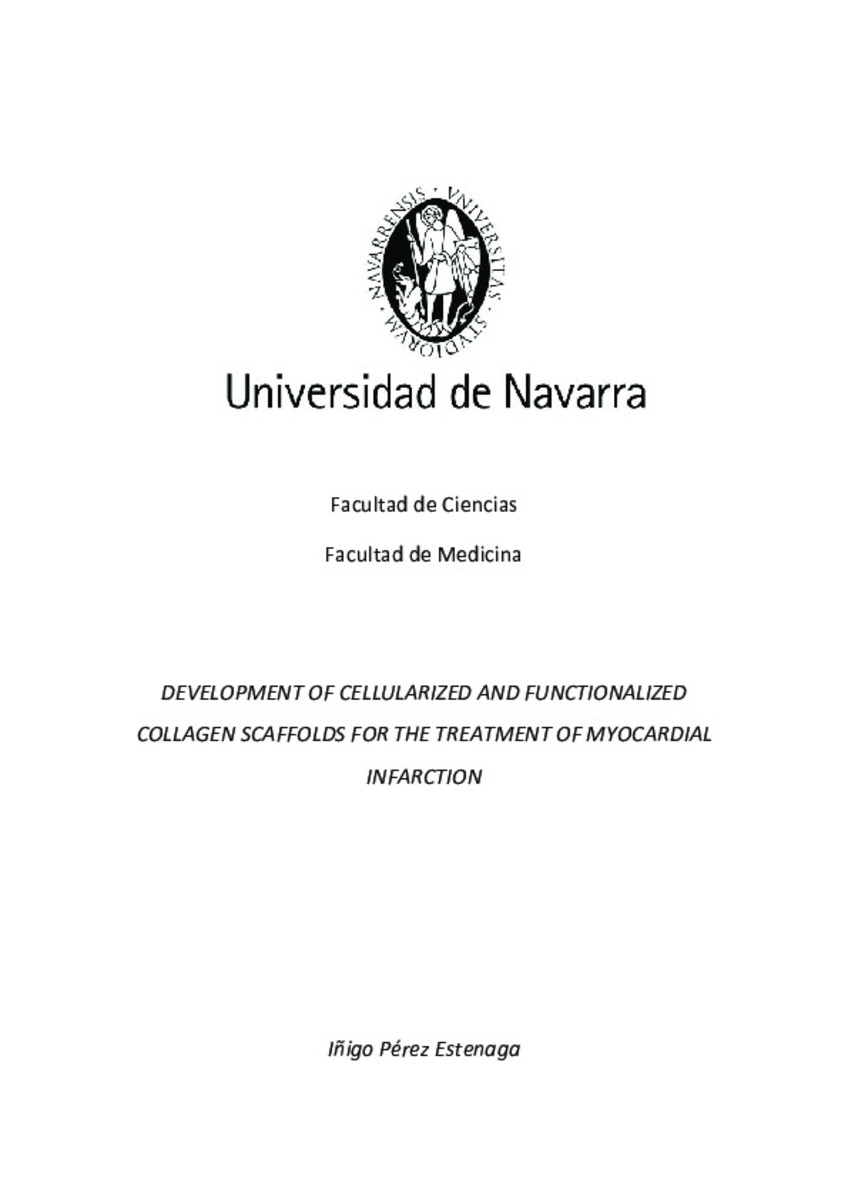Development of cellularized and functionalized collagen scaffolds for the treatment of myocardial infarction
Palabras clave :
Materias Investigacion::Ciencias de la vida::Citología, biología celular
Materias Investigacion::Ciencias de la Salud::Microbiología y biología molecular
Materias Investigacion::Ciencias de la vida::Inmunología
Fecha de publicación :
15-jun-2021
Fecha de la defensa:
13-nov-2020
Editorial :
Universidad de Navarra
Cita:
PÉREZ ESTENAGA, Íñigo. “Development of cellularized and functionalized collagen scaffolds for the treatment of myocardial infarction". Pelacho, B. (dir.). Tesis doctoral. Universidad de Navarra, Pamplona, 2020.
Aparece en las colecciones:
Estadísticas e impacto
0 citas en

0 citas en

Los ítems de Dadun están protegidos por copyright, con todos los derechos reservados, a menos que se indique lo contrario.







